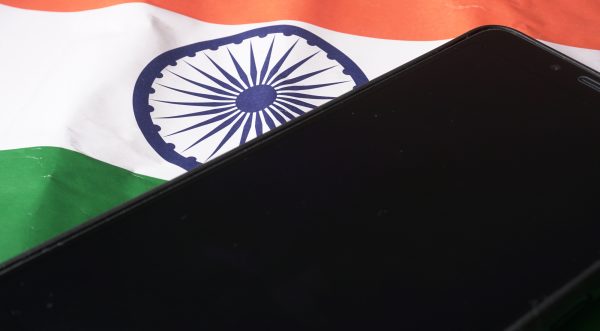In the wake of the Israel conflict, Aditya Raj Kaul, an Indian journalist known for his pro-BJP views, posted on X (formerly Twitter) about the atrocities committed by Hamas, alleging that a pregnant woman was dissected by Hamas, killing the unborn child. As of writing, the post has been viewed 10.2 million times with more than 21,000 retweets, including one from Ben Shapiro, who disseminated it to his large following.
However, this story remains unverified.
The Israel-Palestine conflict was a hotbed for conspiracies and false information even before the current flashpoint. While researchers so far have found minimal evidence of disinformation of foreign origin, the ongoing conflict between Israel and Hamas in the Gaza Strip has nonetheless observed a surge in misinformation. This reveals the significance and salience of the digital battlefield in modern day warfare and combat, engaging the participation of citizens beyond the Middle East in a battle of discourse and ideology.
Amid this fragmented information sphere, the manufacture of and engagement with pro-Israel content among Indian nationals, more significantly among right-wing Hindu nationalists, have not escaped popular attention.
BOOM, a reputable Indian fact-checking service, found several verified Indian X users at the front and center of a “disinformation campaign” that targets Palestine with negative news while supporting Israel. In one instance, a video purporting to show young girls taken by a Palestinian fighter as sex slaves was circulated on X. This video had no context and was likely from a school trip to Jerusalem, but this was shared widely by Indian accounts.
Fact-checker Pratik Sinha has referred to India as the “disinformation capital of the world” due to the rise of right-wing nationalism in the country. There have been attempts to attribute the spread of false information in India on the Israel-Gaza conflict to the BJP’s IT Cell, a department within the ruling party that handles its social media accounts and campaigns. However, beyond the element of state-sponsorship in the spread of mis- and disinformation, this episode reveals wider trends surrounding fake news and grassroots engagement in the production, dissemination, and export of misinformation in India.
The Politics of India-Israel
The links drawn between India and Israel are not new. Ideological resonance has been observed for a long time between the two countries, and this has grown in recent years with the rise of a more muscular Hindu nationalism in India under Prime Minister Narendra Modi.
Scholars have identified the solidarity and affinity among Hindu nationals in India for the Israeli cause, pointing to heavy ideological resonance between Hindutva and Zionism. Madhav Golwalkar, former head of the BJP’s ideological wing, the Rashtriya Swayamsevak Sangh (RSS), articulated a vision of the Hindu nation emphasizing the racialized notion of a state, drawing parallels with Zionism.
This understanding of the Hindu nation has continued to influence the current BJP government under Modi, manifesting in policies like the controversial Citizenship Amendment Act (CAA), which has been compared to Israel’s discriminatory Law of Return. Both measures grant citizenship rights to ethnic majority individuals beyond the state while denying Muslims within the state citizenship rights. For Hindu nationalists, the religious significance of Israel’s sovereignty serves as an aspirational model.
More recently, Modi departed from India’s usual neutrality in conflicts, which was maintained in the ongoing Russia-Ukraine war, by issuing a strong statement of support for Israel and Prime Minister Benjamin Netanyahu in response to Hamas’ attacks. This move reflects the close diplomatic ties established between Modi and Netanyahu since 2014, with Modi being the first Indian prime minister to visit Israel and Netanyahu calling him a “kindred spirit.” This camaraderie has set the tone for India-Israel relations, and India’s economic and strategic ties with Israel are increasingly apparent.
While India’s Ministry of External Affairs (MEA) asserts that India recognizes and supports the Palestinian cause and advocates for the “resumption of direct negotiations towards establishing a sovereign, independent, and viable State of Palestine living within secure and recognised borders, side by ide at peace with Israel,” Modi’s leanings toward Israel reflects what has been called his “biggest ideological departure from Congress on Middle East policy.”
The Right-Wing Digital Network
The transnational nature of right-wing ethnonationalist affinities presents the possibility to observe and study right-wing nationalism as a network. This virtual ecosystem has become the fertile ground for normalization and dissemination of hate, fueling calls for violence within these networks.
Within Israel, there is an observed normalization of right-wing extremist views within Netanyahu’s new coalition, which features the inclusion of the far-right in the government. This right-wing allyship can also be seen in Israel’s embrace of far-right movements across Europe – and in the strengthening ties between India and Israel.
In reflection of this solidarity, Israeli Ambassador to India Naor Gilon congratulated India on its Cricket World Cup win over Pakistan, announcing on X that he is glad that Pakistan would now be unable to achieve a victory that it would have attributed to Hamas. Gilon also added an emotional note, thanking “Indian friends” for “showing their solidarity with Israel by displaying posters during the match.”
Worryingly, this camaraderie has trickled down to the populace. Beyond the political sphere, the right-wing nationalist network serves as a social phenomenon and a mobilizing force in society. The internet as a global civic space has facilitated the flourishing of digital populism, marked by the use of the internet for participation and mobilization, and the creation of an environment conducive for the circulation of nativist and xenophobic narratives.
At the grassroots level, the pervasive impact of the rise of Hindutva can be seen in the prevalence of pro-Israel sentiments among supporters of the Hindu right. These ideological affinities between Hindu nationalists and Israel manifested online long before the ongoing conflict. Since Modi assumed office in 2014, it has become common to see tweets from Hindu nationalists expressing unwavering support for Israel and Netanyahu. This sentiment is often referred to as the “India-Israel brotherhood,” and these expressions of support often go hand-in-hand with condemnations of Palestine, Pakistan, and even Muslims in general, further underscoring the shared ideological alignment between these two groups.
Grassroots Disinformation and the Right-Wing Digital Network
While this exploitation of international events to fuel domestic events is not new, what can be observed is the emergence of a voluntary and decentralized disinformation campaign by Hindu nationalists in support of Israel. Calling themselves “digital champions” of Israel, individual accounts with large followings push unverified one-sided news against Hamas, which have gained substantial momentum online. This phenomenon has not escaped the attention of global netizens, and it has triggered an onslaught of memes and satirical content aimed at the Hindu nationalists’ vocal support for Israel.
The fervor of Indian netizens for Israel was evident even before the recent escalation of violence. The recognition of said support has since been put on the record, with the official account of Israel’s Ministry of Foreign Affairs’ thanking India after “India is with Israel” trended on Twitter.
Disinformation and the right-wing network are mutually reinforcing. First, disinformation utilizes narratives derived from this right-wing network, with the success of the campaign riding on the highly emotive nature of right-wing beliefs. As the current conflict unfolds, Israel’s intense retaliation toward Hamas and the deadly strikes against Gaza are being co-opted by Hindu nationalists to advance their anti-Muslim agenda. The intertwining of domestic politics with larger global issues has given fresh voice to the stoking of anti-Muslim hate as narratives borrowed from a foreign conflict are used to justify the persecution of Muslims in India.
Second, the spread of disinformation containing right-wing narratives serves to circulate, perpetuate, and therefore reinforce “rhetoric and motifs” common and central to a variety of right-wing and far-right discourses.
But the right-wing network does not bear sole responsibility for the fragmented information landscape. The larger Israel-Palestine conflict remains a highly affective one; people of different cultures and creeds find themselves and their own experiences in one facet of the conflict or another. Individuals consume and thus perpetuate misleading information that bolsters their worldview, contributing to the onslaught of misinformation.
The Ever-Evolving Landscape of the Conflict Information Sphere
Amid conflicting, partisan information, netizens, experts, and traditional media continue to debate who perpetrated the devastating bombing of the Al-Ahli Baptist Hospital in Gaza. However, as of now, this remains undetermined.
In a post on X, a user that claiming affiliation with Al Jazeera alleged that she witnessed a misfired Hamas rocket hitting the hospital. Al Jazeera later released a statement to clarify that said user has no ties to the network. Multiple X users have pointed out the user had previously only posted on Indian politics and cricket, only recently turning her attention to Gaza, insinuating her origin.
As the violence in Gaza becomes increasingly egregious, Modi has conveyed his condolences at the loss of lives at the Al Ahli Hospital in Gaza, pledging that India will continue to send humanitarian aid to the Palestinian people. Indian netizens are divided on Modi’s stance, however, amid the ideological alignment and friendship with Netanyahu’s Israel. The dynamism of the unfolding events may thus see the pluralization of narratives and grassroots disinformation attempts targeted at both sides of conflict. But one thing is for certain: In the case of Indian social media, digital boots are continually deployed on the information battlefield.





















Discussion about this post